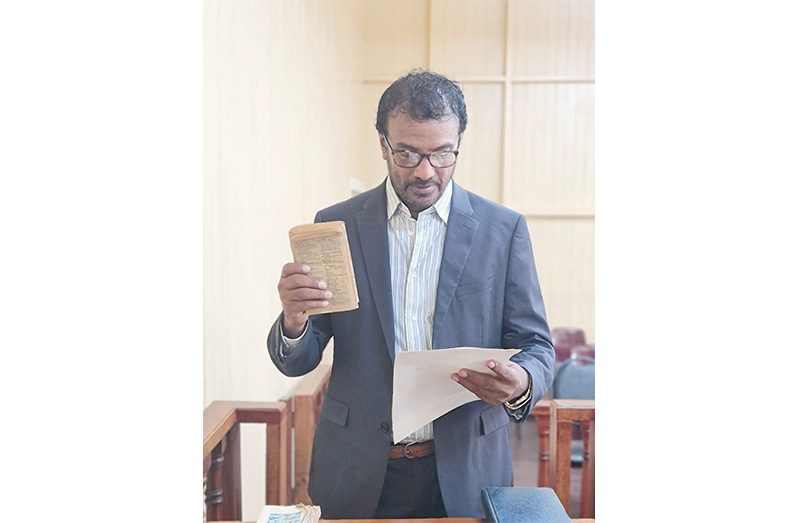– underscores civic duty and service to community
IN a brief but meaningful ceremony held on Friday at the Georgetown Magistrates’ Court, Imam Halim Khan, the spiritual leader of the Meten-Meer-Zorg (East) Masjid, was officially sworn in as a Justice of the Peace (JP) and Commissioner of Oaths and Affidavits.
The appointment adds a new dimension to Imam Khan’s longstanding commitment to public service and community development.
Speaking after the ceremony, he emphasised that the roles are more than legal designations—they represent a civic duty and a meaningful way to give back to society.
“I see this as an opportunity to continue serving the people beyond the mosque. Whether it’s helping someone sign a document, certify a form, or understand a legal declaration, this is about making justice and official processes more accessible to ordinary citizens—especially in rural areas,” Imam Khan stated.
In Guyana, Justices of the Peace and Commissioners of Oaths and Affidavits play vital roles in the legal and administrative framework.
A Justice of the Peace is authorised to witness signatures, certify documents, and take declarations for legal or official purposes. Often considered respected figures in their communities, JPs may also mediate disputes or assist magistrates in minor judicial functions.
Meanwhile, a Commissioner of Oaths and Affidavits ensures the legal validity of sworn documents, such as affidavits, statutory declarations, and court-related filings. They also administer oaths and confirm that individuals understand the implications of their sworn statements.
Imam Khan’s dual appointment enables him to bridge both civic engagement and legal assistance, particularly for underserved communities that may lack easy access to attorneys or formal legal services.
“It’s about service with integrity,” he noted. “These appointments should never be taken as a status symbol but rather as tools to uplift and assist. If I can help someone avoid a long trip to town or navigate a confusing process, then I’ve done my part.”
The role of a JP is largely honorary but not without responsibility. As Guyana continues to promote greater access to justice and streamline public services, the presence of trusted individuals like Imam Khan in various regions helps bring government services closer to the people.
Both the Ministry of Legal Affairs and the Judiciary have been working to appoint more such officers throughout the country, especially in regions where legal infrastructure is limited.
Imam Khan concluded his remarks by encouraging others to step forward for public service in all its forms.
“Serving as a Justice of the Peace and Commissioner of Oaths is not just a legal function—it’s a way of ensuring people feel heard, respected, and empowered.”
His appointment stands as a reminder that community leadership, when combined with legal responsibility, can serve as a powerful force for good.



.jpg)











